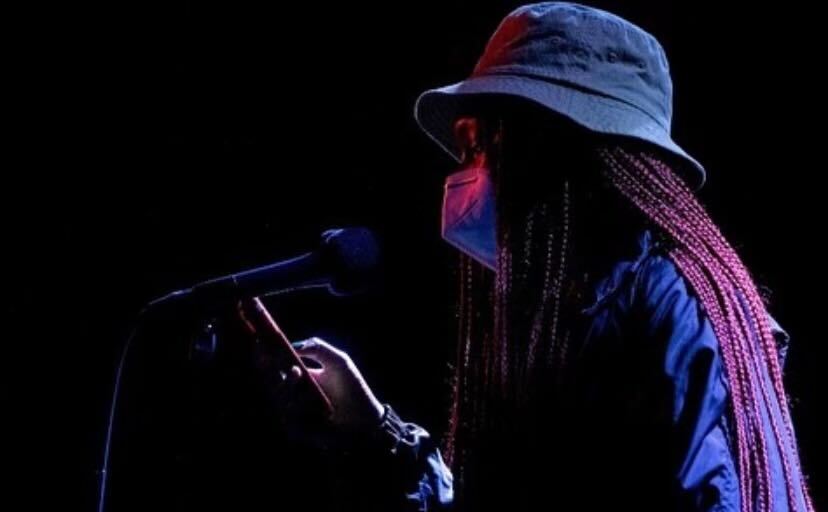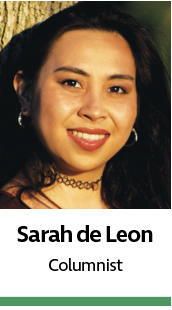
Recently I had the privilege of sitting down with two talented Black members of our community to discuss their respective projects, achievements, and the hopes they have for Lane County.
Lyta Blunt is a dynamic drag queen, DJ, singer/songwriter, and producer who has taken the local entertainment scene by storm.
As someone who has also been actively involved in the entertainment scene, she has been a source of inspiration for me as I continue to watch her career unfold.
When she is in the spotlight, Blunt has an exuberant, larger-than-life personality that pumps up a whole room before she even opens her mouth.
When she is not in performance mode, she maintains her charismatic energy and powerful sense of self. She has a casual attitude and a warm smile that makes her just as wonderful to speak with as it is to watch her perform.
Originally from Portland, Blunt moved to Lane County in 2017 to pursue acting, receiving the title of “best actor” by Eugene Weekly in 2021.
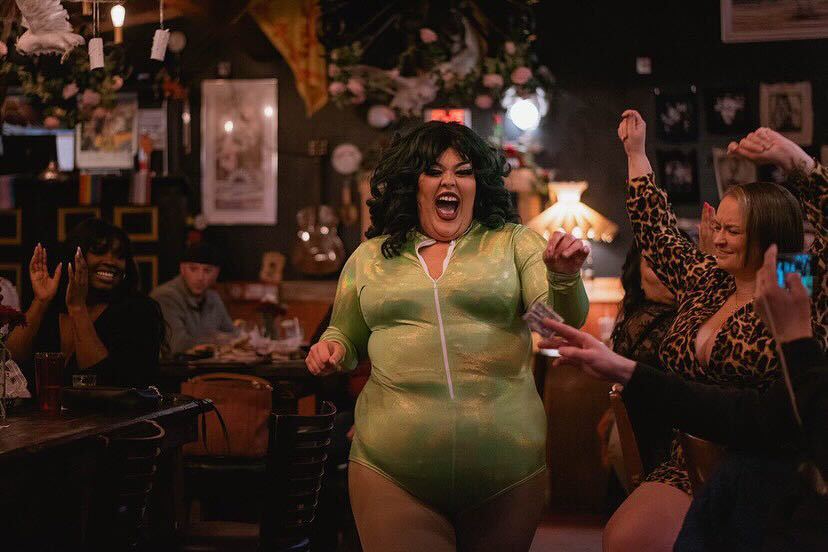
She knew at a young age she wanted to be an entertainer and this interest only grew when she was asked to host several assemblies and local events as early as high school. “I was always performance-oriented. I knew it was something I was really interested in,” she said.
It wasn’t until she started working as a DJ and stage manager for some drag shows that she discovered her true calling within the community. In October 2021 she started performing drag herself, and it opened up a world of opportunities.
Blunt is now a full-time entertainer and producer. She uses her platform to embrace, encourage, and empower diverse artists across all sexual and gender identities, ethnicities, and body types. On Feb. 25, Blunt celebrated the one-year anniversary of her original monthly show, “We’re Right Here,” that exclusively features BIPOC artists.
This show began with all Black artists in February 2022 and was expanded to all BIPOC performers in June 2022. The idea for this show stemmed from Blunt’s frustration with the lack of diversity in performance spaces.
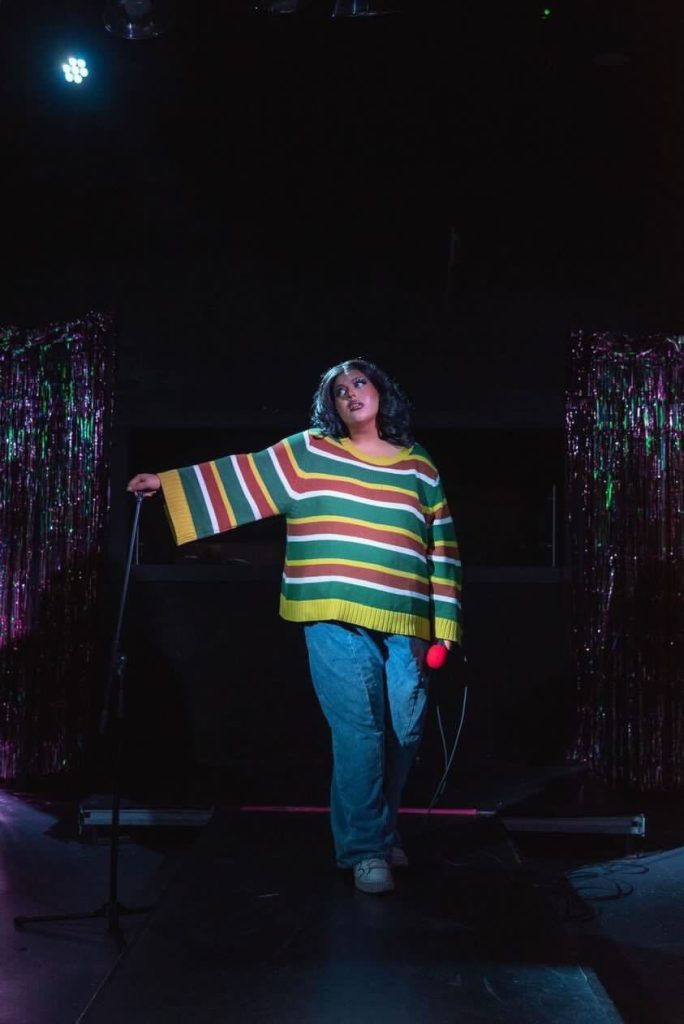
“When I was an acting student I was told that there’s not enough Black performers. It’s not true. When we do show up, we’re not being cast. That’s what pushed me to create ‘We’re Right Here.’ … The event is centered on showcasing people who are being ignored even though they are literally right here in front of you. You can’t say there aren’t enough. We’re right here.”
Lyta hopes to continue to champion all forms of diversity through the shows she produces and/or performs in.
“My priority as a producer is to create spaces where every single person feels good about themselves in the space, feels excited and happy to support the people around them, and ultimately know that they’re contributing to this deeper sense of community,” Blunt said. “Other producers have to also be responsible about how they’re representing their community, and promote diversity amongst their performers.”
Blunt said that the responsibility also lies within the community to help diversify performance spaces. “People in the community at-large need to be focused on supporting events that promote the diversity we need and want to see in the entertainment scene here. The more power that we are able to put into our BIPOC, queer, and other marginalized communities, the more we will be able to help build scenes for them.”
***
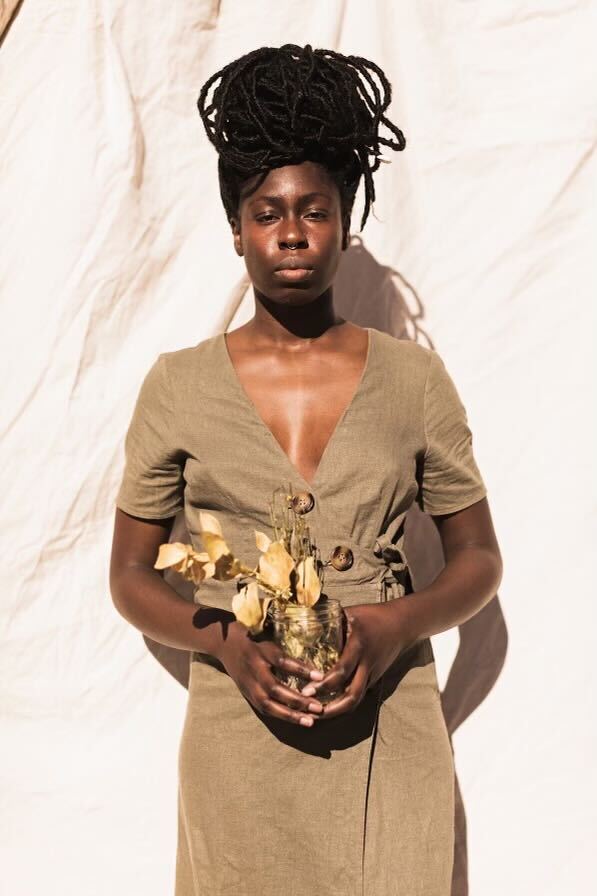
Aimée Okotie-Oyekan is an environmental scientist, non-fiction writer, poet, and visual storyteller through modeling. I first met Okotie-Oyekan when she was cast in the same play as me at The Very Little Theatre.
Before rehearsal one evening, we found time to get together in the quaint, surprisingly comfortable women’s restroom that offered us a private, albeit cold, place to talk.
Dressed beautifully in a black-and-white dress, Okotie-Oyekan spoke eloquently and passionately about herself and her art.
The more I learn about Okotie-Oyekan, the more impressed I become with her extensive knowledge and experience spanning many areas of art and science.
She moved to the Willamette Valley from Georgia in 2018 to study environmental science at the University of Oregon. Since then, she has graduated with a masters in environmental studies and a masters in community and regional planning.
At the moment, she is a land use and transportation planner for the Oregon Department of Land Conservation and Development. It is there that she uses her voice to push more climate-friendly initiatives.
When she isn’t using her skills to help the environment, she uses her experience as a queer, British-Nigerian citizen to explore concepts such as identity and liberatory futurities through her art.
“I feel like I have two sides: an analytical side, and a very creative side,” she said. “Society conditioned me to believe that the analytical, scientific side is the most successful so that’s what I really fostered in my life and built up to the career I have now. It’s exhausting always having to be analytical, though, so it’s been nice getting to lean into my creative side more.”
Her ultimate goal is to combine both sides of herself. “I want to work on community-based projects that are addressing environmental and social justice while also getting to mix in creativity.”
Similar to Blunt, Okotie-Oyekan has taken note of the lack of diversity throughout Lane County and has some ideas that could help diversify our community.
“Dealing with the lack of diversity here, understanding it, and overcoming it have been a bit of a challenge,” she said, reflecting on her past few years. “Everyone is talking as of late about diversity, equity, inclusion … they are very hot buzzwords. And, especially after the Black Lives Matter movement in 2020, things are changing. There are continued efforts to create safe, welcoming spaces that celebrate communities of color, but it’s still an uphill battle.”
She pinpoints the lack of diversity in Lane County to a simple lack of experience with these marginalized communities as opposed to a lack of willingness to diversify. “There isn’t a lot of overt violence compared to other regions (in America), but there are microaggressions or folks not really understanding what true diversity looks like. A lot of people here are simply unable to connect or relate to our experiences.”
When I asked what she thinks some solutions could be to address this issue, she gave a detailed response based on her own living situation here.
“One thing that really needs to change is housing. There are people who are simply unable to afford a place here. The more we address housing issues and can create stability for historically marginalized communities to be here, the better (the diversity) would be. More resources and funding to create safe, healthy, habitable spaces where these communities can live and thrive is a baseline that needs to be addressed.”
Another solution she suggested for the community at-large is to support diversity whenever possible. “Supporting culturally specific opportunities is important. People should go to things that speak to a specific culture – like their history, music, food – and invite others to also learn about it.”
Okotie-Oyekan is a humble, intelligent leader who will continue to encourage change through her voice as both a scientist and an artist.
Okotie-Oyekan and Blunt both said a stronger, diverse community is possible but it will take work from all facets of our community, whether it be the entertainment scene, the local government, or everyday citizens who care enough to support change.
“Diversity should be treated as something that isn’t optional,” Blunt said.
“Having historically marginalized communities at the forefront as we’re moving forward is key,” Okotie-Oyekan said.
Reach Sarah de Leon via email at [email protected]

